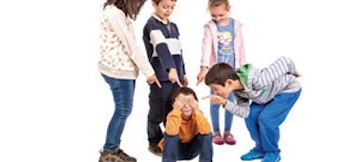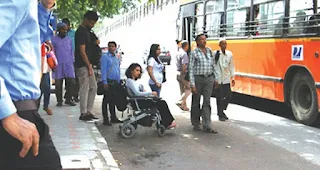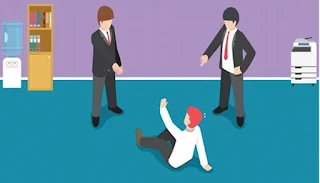Social Exclusion And Inclusive Policy In Jammu And Kashmir
Notes
Introduction
Social Exclusion:- Overall, Social Exclusion is a condition in which individuals are unable to participate fully in political, social, economic and cultural life. Social exclusion in not only a phenomenon but a process too. Social exclusion got its first existence in France, where it was used by Paul Lenior in 1974.
Social exclusion refers to identify the situation of certain excluded groups under one umbrella which includes physically and mentally challenged children, substance abusers, delinquents, single parents and marginals. Social exclusion is a complex and multi-dimensional situation having political, social and cultural ramifications.
Social exclusion refers to identify the situation of certain excluded groups under one umbrella which includes physically and mentally challenged children, substance abusers, delinquents, single parents and marginals. Social exclusion is a complex and multi-dimensional situation having political, social and cultural ramifications.
Forms of Social Exclusion
A. Economic Exclusion: Deprivation in relation to basic needs and material goods. It is inadequate access to government and non-government healthcare, education, housing, employment, insurance etc.
B. Political Exclusion: Inadequate participation and representation in democratic institutions and processes. These institutions and processes include expressing opinions, elections, political parties, parliament etc. It is the deprivation of opportunity to engage with and contribute to functioning of these institutiins and processes.
C. Cultural Exclusion: A lack of consonance with basic rules of society.
D. Social Exclusion: A lack of participation in formal and informal social networks.
B. Political Exclusion: Inadequate participation and representation in democratic institutions and processes. These institutions and processes include expressing opinions, elections, political parties, parliament etc. It is the deprivation of opportunity to engage with and contribute to functioning of these institutiins and processes.
C. Cultural Exclusion: A lack of consonance with basic rules of society.
D. Social Exclusion: A lack of participation in formal and informal social networks.
Conditions of Special Ability
Special Ability is a condition caused by an accident, trauma, genetics or disease that may limit a person's mobility, hearing, vision, speech or mental function. Grossly, Special Ability includes locomotor, visual, hearing and other mental ailments. It is individual ability in a particular mental or physical function as opposed to general ability.
Special Ability and Social Exclusion
Special Ability fits into all the three elements of Political, Cultural and Social Exclusion stated in UNICEF report 2006 "Excluded and Invisible"
People with special abilities are undoubtedly among the most vulnerable and remain at risk of social exclusion. More than any other socially excluded group, people with special abilities remain invisible in political agendas, human rights struggle, development strategies and in science reserach.
Generally, for Special Abled People the world is beyond reach. The most ordinary aspirations like to enter educational institutions, to work, to go out to worship, get married etc are frequently denied. Persons with special abilities have remained at the outer periphery of both society and Government policies.
India has specially abled population of about 26 million suffering from various kinds of special abilities which account for 2.21 percent of total population.
People with special abilities are undoubtedly among the most vulnerable and remain at risk of social exclusion. More than any other socially excluded group, people with special abilities remain invisible in political agendas, human rights struggle, development strategies and in science reserach.
Generally, for Special Abled People the world is beyond reach. The most ordinary aspirations like to enter educational institutions, to work, to go out to worship, get married etc are frequently denied. Persons with special abilities have remained at the outer periphery of both society and Government policies.
India has specially abled population of about 26 million suffering from various kinds of special abilities which account for 2.21 percent of total population.
Treatment of people with special abilities
- Children bulying other children within school

- Bus drivers failing to support access needs of passengers with special abilities
- Discrimination against people with special abilities

Efforts Made by Government in Jammu and Kashmir for more Inclusion
The Government of Jammu and Kashmir has been working towards strengthening norms and values of social inclusion. The department of Social Welfare, Nodal Agencies of Govt. of Jammu and Kashmir work in holistic manner with other Government Departments, agencies, NGOs and civil society for more inclusion of Specially Abled persons to make the society more inclusive. Social Welfare Department of Jammu & Kashmir Government has formulated various policies and programs like Pre-Matric and Post-Matric Scholarship Schemes for students with special ability. Reservations for specially abled in Educational Institutions, in Public Employment etc. were in accordance with the Fundamental Rights as enshrined in the constitution of India. The Government has been providing special unemployment allowances to all Educated unemployed specially abled persons. The schemes are applicable to a person with minimum qualification from matric to Master’s degree.
How we can Include Socially Excluded
Proper sensitization is required along with appropriate awareness, training and education regarding the conditions, problems and challenges faced by specially abled people. Inclusive Education should be made compulsory at all levels of schooling. Surrounding amenities (lifts/ramps) should be structured at public places. Sports for specially abled should be encouraged. Special emphasis be laid on promoting self employment among differently abled persons.






If you have any doubt, suggestion or question, feel free to contact us.